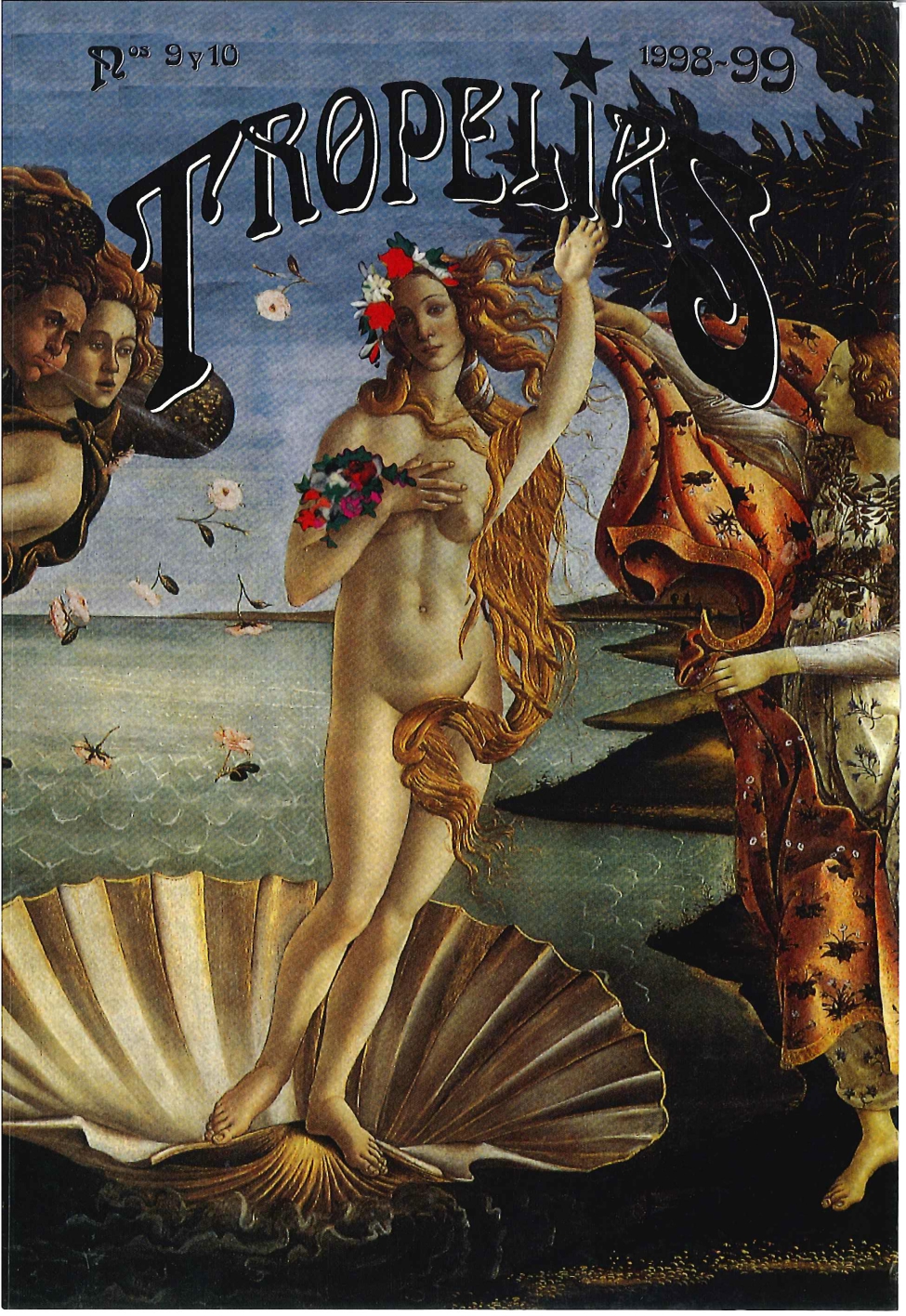Arnalte, Cardenio, and "The Second Maiden's Tragedy": from narrative to theater
DOI:
https://doi.org/10.26754/ojs_tropelias/tropelias.19999-105686Keywords:
Miguel de Cervantes, Diego de San Pedro, The Second Maiden's TragedyAbstract
The genre known today as sentimental narrative was widely popular at its time and even later. Some of the fictions enjoyed an abundant readership, were translated into other languages, and came lo influence such masterpieces as Cervantes' Don Quixote. The "Tale of Cardenio and Luscinda" in Don Quixote is strikingly similar to the Tractado de amores de Arnalte y Lucenda, one of Diego de San Pedro's contributions to the genre. Aside from plot coincidences, both fiction and tale make use of theatrical devices. Not suprisingly, Cervantes' tale was lhe model to a british play known to scholars as The Second Maiden's Tragedy, which has been atributed to Shakespeare and Fietcher. In this article I study the relationship between the three texts and lhe twists and turns of a fabula that, first created as narrative, came to be drama two centuries later.
Downloads
Downloads
Published
How to Cite
Issue
Section
License
Copyright (c) 2021 Lourdes Albuixech

This work is licensed under a Creative Commons Attribution 4.0 International License.
Los artículos enviados a la revista Tropelías deben ser originales e inéditos, no publicados previamente en cualquier soporte. Únicamente se aceptará material publicado total o parcialmente con anterioridad, o que esté en proceso de evaluación en otra revista, si se hace constar la causa de tal duplicación y se facilita la fuente donde ha aparecido dicho artículo.
Las imágenes que se incluyan en los artículos estarán libres de derechos de reproducción y, en caso contrario, los autores deberán presentar los permisos para su publicación y asumir los pagos derivados de ello.
Los artículos y reseñas publicados en la revista Tropelías pueden ser incluidos en repositorios temáticos o institucionales desde el momento de su publicación, sin modificación alguna e indicando claramente su procedencia.


